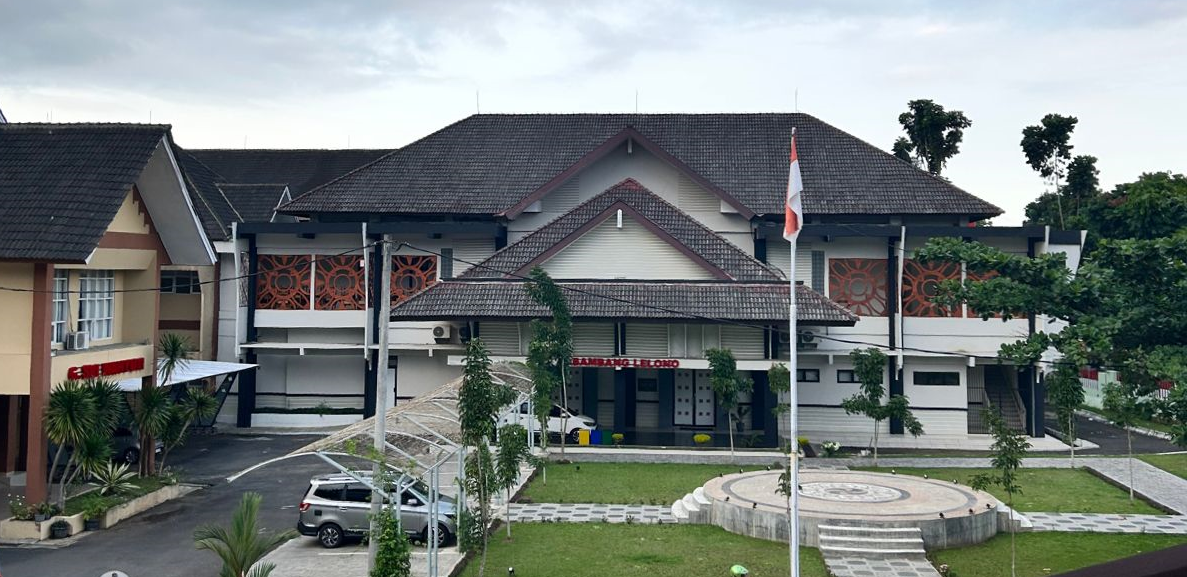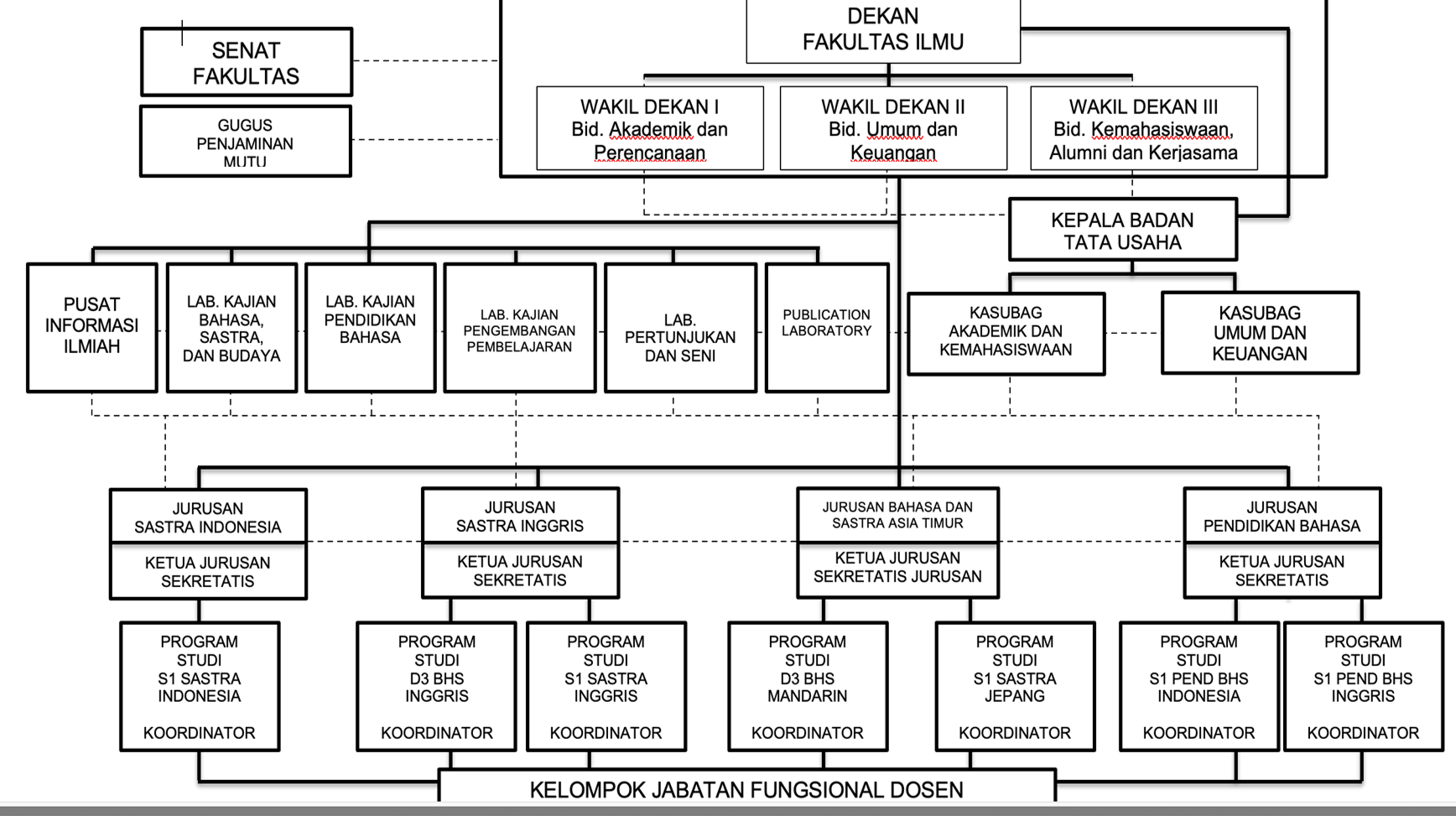
Bambang Lelono Building, Faculty of Humanities
History
Faculty of Humanities is started with the establishment of the Department of Cultural Sciences under the Faculty of Social and Political Sciences, Jenderal Soedirman University. The Department of Cultural Studies has been established since the establishment of the Language Laboratory in 1990. The Language Laboratory, which later changed its name to the Language Center or English Language Center (ELC) in 1992 was appointed by the rector to prepare for the establishment of the Diploma of English Language Study Program. This instruction was then followed up with the formation of the Establishment Committee for the D3 English Program based on Rector's Decree No. Kept.179/PT 30.H/I/1995, and this became the beginning of the formation of the D3 English Study Program which was opened in 1997. With Technical Implementation Unit (UPT) of Language Studies as its parent, D3 English Study Program finally obtained the Decree of the Directorate General of Higher Education number 456/DIKTI/Kep/1998 which is directly under the university. Since the founding of the D3 English Study Program, enthusiasts for this program have increased from year to year. Since graduating for the first time in 2000, the demand for opening undergraduate study programs has increased. This then became the basis for the opening of the undergarduate program in language studies. This request from the community was then answered by the opening of the Bachelor of English Language and Literature Study Program and the Bachelor of Indonesian Language and Literature in the 2003/2004 academic year on the basis of the Decree of the Directorate General of Higher Education number 183/D/T 2003 dated 30 January 2003. This year coincided with the year it was opened Mandarin Language D3 Study program based on the Decree of the Director General of Higher Education no. 34/DIKTI/Kep/2002.
In its development, the four study programs then joined the Faculty of Social and Political Sciences in 2007, under the auspices of the Department of Humanities, based on the Chancellor's Decree number: Kept. 296/H23/OT/2007 dated 24 August 2007. In 2010, this department then opened a Bachelor of Japanese Literature Study Program on the basis of an implementation permit for Study Program SK Mendiknas no 115/D/O/2010 dated 10 August 2010. This fact then made the Department of Humanities as the only department at FISIP Unsoed with five study programs. In addition, the Department of Humanities has a scientific field that covers various aspects of study. The fact that Humanities is a faculty in other universities leads the inspiration to the founding of Faculty of Humanities of Jenderal Soedirman University.
Along with the development of the Department of Cultural Studies, in 2014, the Indonesian Language Education Study Program was established and in the same year, the Study Program began accepting students for the first batch.
Finally after a long application process, Faculty of Humanities is established based on the Unsoed Rector's Decree Number: 1600/UN23/OT.01/2014. It is hoped that the Faculty of Humanities, Jenderal Soedirman University can meet the needs of the community to study language and culture and also to be able to participate in the progress and development of the era, especially in the fields of language, literature and culture.
The Faculty of Cultural Studies consists of four departments, namely the Department of English Language and Literature which accommodates the Bachelor of English Literature and Diploma Study Programs in English, the Department of Indonesian Literature, the East Asia Department which consists of the Bachelor of Japanese Literature and Diploma Study Programs in Mandarin, and the Department of Education consisting of the Bachelor of Indonesian Language Education and English Education.
Vision, Mission and Objective
Organizational Structure

Struktur Organisasi dan Tata Kelola

